An intro about “saving the country” again
One of the witticisms circulating in Moldova before every election is the plea to “save the country once again,” which sometimes is accompanied by the explanation: this time it is really important… This catchphrase is an ironic reference to the fact that elections in Moldova are usually about more than just voting — electoral rhetoric is so suffused with geopolitical, religious, cultural, and ethical references that each time it seems that it is not simply about the simple matter of casting a ballot, but rather about an eternal battle between Good and Evil, in which at stake is nothing less than the fate of humanity.
The parliamentary elections on September 28, 2025, not only follow the trend of “saving the country,” but are also amplifying it to unprecedented levels. The candidates are competing to convince their electorate that participating in Sunday’s vote is mandatory because the elections are “historic, important, crucial, the last elections,” and if their opponents win, it will be… a catastrophe, the end of the world and the end of history.
They are all old, and they are all new.
Perhaps the most obvious thing about these elections, is that all the parties and electoral blocs that matter in the race (plus a large number of independent candidates) have been in government at one time or another, at the national or local level. There are minor and insignificant exceptions, of course, but they do not alter in any way this description.
Moreover, all the relevant parties have already been (some more than once!) in various governmental configurations that had different geopolitical orientations: all of them have been in pro-European and pro-Russian (or Russia-backed) governments at some point.
Even more, all parties that have been in power have implemented roughly the same governing program. Put shortly, the “model of governance in Moldova, which is also probably the dominant paradigm in Eastern Europe over the last 20 years looks like this: politically authoritarian, capitalist and neoliberal in economics, and nationalist in ideology. There is a “deep” consensus among local political parties about this model of governance that goes beyond the rhetorical gymnastics about traditional values, East or West.
This deep consensus is based on three pillars: one economic, one ideological, and one political.
On the economic side, the consensus is based on the total agreement on the general strategy of economic development – “more capitalism under any circumstances.”
On the ideological side, the consensus is based on nationalist rhetoric: Moldovanist in the case of the “conservative left,” moderately unionist in the case of PAS, and radically unionist in the case of forces such as BUN and AUR.
On the political side, the consensus is based on a preference for authoritarianism.
Reduced to its essential components, this deep consensus looks like this: minimal state (not enough for social protection, but enough to provide resources that can be shared among the party’s cronies), economic liberalization, deliberate weakening of internal regulations (in the field of labor rights and the environment) for the sake of investors and foreign investment, favoring foreign capital, embezzlement/privatization of public property, etc. All having the same result: Moldova was and remains the poorest country in Europe.
To summarize: perhaps for the first time in its post-independence political history, the Republic of Moldova has no new people, new parties, or new visions in politics.
The elections are like Halloween, which is coming early this year.
All tools are fair game in these elections: scare tactics, threats, exaggerations, lies, fabrications, alarmist speeches, inventions, slander, insults…
The deepest anxieties, fears, and anguish are awakened and fueled in order to force people, to make the “rational choice” (irony intended) for one candidate or another…
A candidate for deputy from the ruling party (PAS), Doina Gherman is trying to mobilize her electorate by scaring them that if they do not vote for her party, their relatives in European Union countries will no longer be able to return home: “Dear Moldovans, if we lose the European path, we risk losing the freedom of movement that we are currently enjoying. We risk our relatives no longer being able to come home. We risk finding ourselves with closed borders again.”
The country’s president, Maia Sandu, who should be above party politics, is also adding her voice to the chorus of scare tactics, in order to amplify it: “Our sovereignty, independence, integrity, and European future are in danger. (…) If Russia ends up controlling Moldova, the consequences will be direct and dangerous for our country and the entire region. All Moldovans will suffer, regardless of who they voted for. Europe will end at the border with Moldova. European funds will stop at the Prut River. Freedom of movement could end. Our land could become a ramp for infiltration into the Odessa region. The Transnistrian region would be destabilized.” Previously, the head of state warned that if PAS loses power, Ukraine could impose barriers on Moldovans’ access to water from the Dniester River…
A campaign banner widely distributed on social media by PAS claims that if other political forces win the elections, there is a risk that European funds and projects might be stopped, voting in the diaspora might be canceled, and… the population of Moldova might be used in foreign wars…Another campaign image, distributed by someone on behalf of PAS, but against Dodon-Ceban, threatens me that if I vote for any of their parties, I risk “bringing war to children and condemning them to slavery.”
To make this Moldovan Halloween complete, the opposition is keeping up with the ruling party and coming up with its own list of monsters—ghosts, vampires, and griffins—that will invade Moldova if PAS remains in power.
Former president Igor Dodon, currently a candidate for the Patriotic Electoral Bloc (BEP), reveals that “if PAS remains in power, the Sorosists will force Sandu to attack Transnistria together with Zelensky and open a second front there—in support of Ukraine and against Russia.”
A BEP campaign leaflet says, no more and no less, that “PAS would attempt to promote foreign values in schools (V.S. it refers to rights of sexual minorities and education about sexuality) and will attack the church.”
The same Igor Dodon: “If we leave them in power, they will raise tariffs, plunge the country into debt, take away our faith, cancel neutrality, and push us into war!”
Both the government and the opposition are scaring voters that if they don’t vote for them, Moldovans will be mobilized in foreign wars.
Obviously, everyone has their own war in mind.
The electoral competitors are no longer even trying to convince people; scare tactics seem more accessible. And scare tactics is clearly more convenient.
…In my circle, people who are quite distant from party politics and go about their business mostly as unskilled workers in France and Spain, are asking me if it’s true that they could lose their jobs and be hunted down and expelled from the European Union if some other political party than PAS will win on Sunday. I tell them that the EU has for sure legal procedures and laws, that no European official has made such irresponsible declarations (and absurd from any point of view: if a person is working legally, how the hell can you detain them and send them back to Moldova just because you don’t like the results of the parliamentary elections?), but I feel that I cannot convince or calm him. “I’ll go and cast my vote anyway,” my friends tell me, and we all understand that this vote is not one cast out of enthusiasm and confidence in a party’s program or abilities, but out of fear.
But when the votes are counted, they come without a personal biography, and even if they are cast out of fear, they are equal to any other vote, whether cast out of fear or confidence…
Another friend asks me if I happen to know when direct banking transactions between the Russian Federation and Moldova will be resumed. His situation is as follows: his father, who worked legally in Moscow for many years in the 1990s, has recently retired in the Russian Federation and would like to return to Moldova. But since the links between the banks of the two countries severed, he cannot receive in Moldova his Russian pension. He gets a minimum pension in Moldova (which is totally not enough!) and a fairly good, but inaccessible, pension in Russia. “Fuck them, the imbeciles,” he tells me, referring to the people that are, in his mind, responsible for this situation (the ruling party). “I’m going to vote for anyone but them, because my father is not to blame for Putin and his war…”
This is also not a vote of enthusiasm or confidence, but a vote of hatred. But hey, when it comes to counting, every vote is equal to any other vote…
United in hatred…
A minister who is campaigning for PAS and who probably wants to earn loyalty points in order to get a government seat after the elections, called “bîdle” the voters who do not understand the seriousness of the situation (i.e., who do not vote for his party ). This means, in urban slang, human animals or people that are in an animal state.
This government and party official is not, by any means, an exception. His party has already made it a tradition to divide the country’s citizens into two groups: beautiful people, good people (its members and voters) and bugs, slaves, Kremlin agents, bîdle, fools, brainwashed people, Putinists, saboteurs (those who have other political sympathies). Part of the media, civil society, and influencers affiliated with the government eagerly reproduce these discourses and amplify mutual hatred, helping it reach even the remotest corners of the country.
But the opposition also has its “merit” and “contribution” to the proliferation of hate speech—for anti-government parties, those who disagree with them are regularly being called Sorosists, sodomites, agents of Brussels, Judases, traitors, lackeys…Another part of the media, civil society, and influencers affiliated with the opposition amplify this discourse and do their part to spread mutual hatred to places where it has not yet reached…
Political rhetoric and discourse have deteriorated so much in these elections that you can no longer have a debate, express a different opinion or vision without being accused of treason, without being attacked as deviant, subhuman, a traitor.
Disagreement becomes a crime, and a different opinion from that of the group becomes a “legitimate” reason for hatred…
The daily efforts of millions of people, hundreds of organizations, and initiatives to build bridges of understanding between ethnic, religious, ideological, and cultural groups (that already have enough reasons to dislike each other!) are traded for short-term interests. The next day after the elections the process of overcoming polarization will have to start from scratch. Again. Till the next elections.
The only ideology is geopolitics.
Never before have electoral platforms been so devoid of ideas as in these elections. Never before has the political discussion about everyday problems and their solutions, about visions for the future and the steps to achieve them, been so completely and unilaterally subordinated to geopolitical issues.
The ruling PAS party speaks of these elections as having immense geopolitical stakes. The party’s electoral program seems to have only one point: EU accession. Everything else follows from this only point: peace, development, prosperity. If it could, PAS would give the same answer to all possible questions: the EU. (Somewhat ironically, when I asked a PAS leader, whom I know personally, to complete the Electoral Compass, an online tool for guiding voters that informs them about the positions of the main electoral competitors, he told me that he was only willing to answer questions about geopolitics, and that he would ignore the others—about social and economic policies—because they would somehow resolve themselves once we joined the EU).
EU politicians who come to Chisinau and act as PAS election agents are also talking about these elections as having potentially immense geopolitical stakes. “Russia has constantly tried to undermine freedom, prosperity, and peace in the Republic of Moldova,” said German Chancellor Friedrich Merz, who was visiting Chisinau just before the start of the election campaign, warning that President Vladimir Putin wants to draw the country into Russia’s “sphere of influence.” “There will be no secure Europe without an independent and secure Moldova,” said Donald Tusk, Prime Minister of Poland.
The government and the ruling party are staging photos with European politicians, in whom they are placing all their hopes.
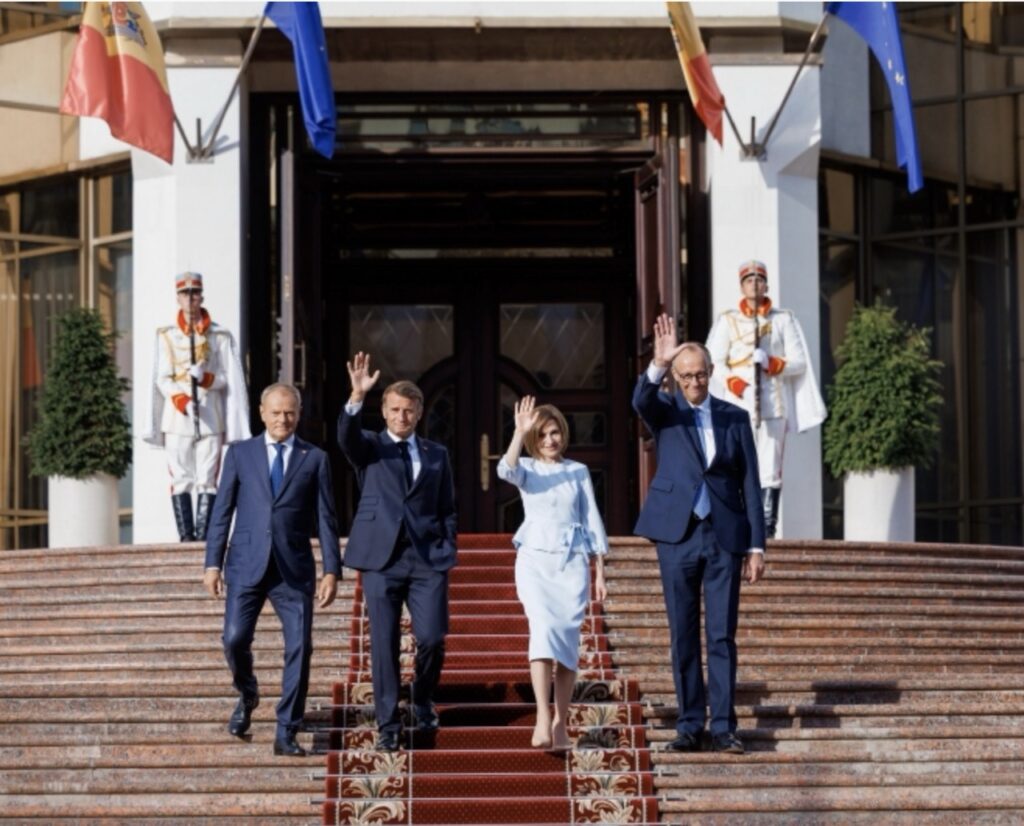
On the other side, from the east, similar statements are coming that amplify the geopolitical stakes of the elections, only in the opposite direction. The Russian Foreign Intelligence Service (SVR) claims that “at this moment, NATO armed units are being concentrated in Romania, near the borders with Moldova. A NATO ‘landing’ is being prepared in the Odessa region of Ukraine to intimidate Transnistria. According to available data, the first group of soldiers from France and the UK has already arrived. Such a scenario (…) could be implemented after the parliamentary elections in Moldova on 28 September this year.”
Another electoral competitor, former mayor Ilan Shor, who is officially banned but present in the campaign, probably through several other pocket parties, is building his electoral platform around the idea of union with Russia: “My political position is that the only salvation for the Republic of Moldova—or rather, for its people, because in the end, every country is made up of ordinary citizens—is union with the Russian Federation. (…) This union must be close, trustworthy, and eternal.”
Part of the opposition is staging photos with Russian politicians, in whom it places all hope.
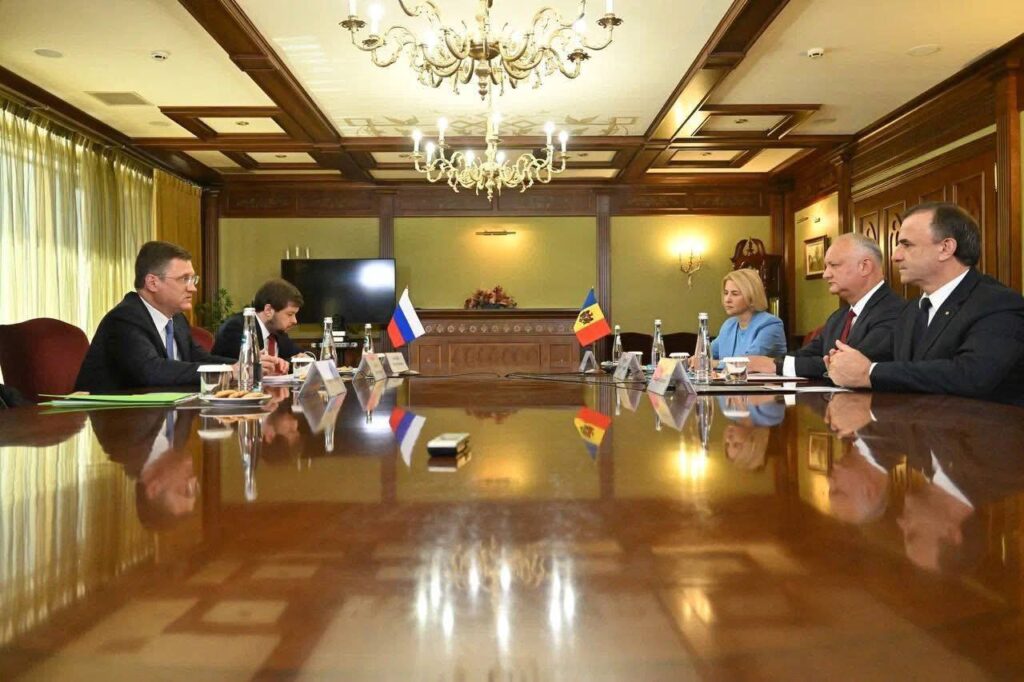
Both the government and the opposition present support from foreign countries and blocs of countries (which would provide money, cheap gas, or privileged access to their markets) as solutions to all the current problems of the country, be they economic or social.
By pinning all their hopes on other countries and blocs of countries, both the government and the opposition acknowledge their own inability to generate solutions and devise plans to overcome the crisis.
It is also a very convenient game for both the ruling party and the opposition, in fact the only useful strategy for all electoral competitors because it saves them from having to discuss economic programs (which they do not posses) and from having to answer painful questions of social, economic, and political character (to which they have no answers).
The perverse effect of this situation is that political parties participate in parliamentary elections not as representatives of social groups with distinct, sometimes complementary, sometimes opposing interests, which must be mediated within a democratic political process, but as “delegates” of geopolitical forces and interests.
From the voters’ point of view, this situation looks even more absurd: they no longer have the right or the space to discuss the issues that concern them, because their choice must first take into account geopolitical considerations, with other concerns and issues being secondary…
This is how we ended up with the situation that the electoral agendas of the candidates are answering questions that no one has asked: Who loves the EU the most? Who adores Russia the most?
This is how we end up with the situation that the electoral agendas that do not answer the questions that people want to ask: how come that, despite massive injections of foreign capital in the form of loans, external assistance, and grants, economic growth in 2024 was only 0.1%, and in 2025 it will probably not exceed 0.9%, far too little for an economic leap or even a robust development? How come that the government, which stoically “resists” Russian hybrid attacks, has no solution to ”mundane” issues such as the housing crisis and the problem of skyrocketing apartment prices in Chisinau (annual apartment prices are rising by 35%)? Why are Moldovan Railway employees (a state company) only receiving their salaries for the month of May only now, at the end of September? Why do successive Moldovan governments (for at least 20 years) continue the failed policy of keeping wages low in order to attract foreign investment (which is no longer coming), policies whose sole effect is to keep Moldovan workers in poverty, whose labor rights are frequently violated by the employers (see the case of the workers at Maxmanserv or Floreana Fashion) and for whom the state does nothing to protect them?
What is the country’s development vision for the next 10 years and what are the scenarios for implementing this vision in an extremely volatile regional and global context? What are the solutions to the country’s demographic decline, which could jeopardize in the medium and long term not only the country’s capacity to maintain and sustain its social protection system, but also its ability to ensure sustainable economic development and implement massive economic transformation processes? Why do the Moldovan authorities only pay lip service to supporting Ukraine in its war with Russia, while Ukrainian refugees in Moldova face huge problems in accessing accommodation and employment and are generally left to the financial and material care of international humanitarian organizations? Why, despite their declarative support for Ukraine, do Moldovan companies transport Russian oil, thereby helping Russia to avoid international sanctions imposed as a result of its attack on Ukraine? Why do the Moldovan authorities vehemently (and legitimately) condemn Russia’s aggression against Ukraine, but remain silent about the genocide currently taking place in Palestine? How can Moldova’s neutrality be turned into an advantage for the country and into an active regional and international platform that promotes peace and cooperation, and from whose moral position it would support negotiations, mediation, reconciliation, and reconciliation between the warring parties?
It is obvious that the geopolitical and fear agendas represent only the interests of a narrow group of people affiliated with the ruling party and opposition parties, some of whom have a direct financial interest in restricting the campaigning to only geopolitics and fear.
The absolute majority of the electorate—farmers, small producers, civil servants, pensioners, workers, and employees—do not see their interests represented at all in the imitation discussions of this election campaign.
The majority of the citizenry is currently living, to put it mildly, outside the state and have minimal contact with it – limited to issuing documents, school (for children), and hospitals. The most important part of their lives – economic prosperity, solving material problems (housing, income) – is ensured by financial circuits and human mobility outside the Republic of Moldova: migration, remittances, undeclared income from rents, leases, sales, etc. Furthermore, the absence of meaningful mechanisms for participation at the local, regional, and national levels (due to lack of transparency, group interests, and the formalism of the public consultation framework) also excludes these people from the political process.
The central paradox of Moldovan politics, which neither these elections nor any other elections can resolve, and which can only besolved through a major reform of the political system, can be formulated in the following terms: there is a small group of people who are very active and have relative access to political, economic, and symbolic power, and this group, in order to protect its privileged access to power, excludes constantly the majority of citizens from the process of political participation. Only around election time does this group “involve” the majority in the symbolic act of voting in order to continue to secure its access to resources.
The state and society of the Republic of Moldova is one in which the mass of citizens is constantly excluded from the political process (you can read any report by organizations that monitor public participation and consultations just to find that the absolute majority of decisions at the central and local levels take place without respecting participation procedures) and has become politically demobilized over time.
A testimony of this political demobilization is the extremely low level of participation in collective political actions: membership in political parties, participation in protests or public discussions and consultations.
Once every four years, the political class offers this excluded majority the opportunity to participate in elections, and then immediately excludes it from the process of governance.
Moldova 2021-2025. European integration without democracy.
On the eve of the parliamentary elections, on September 23, Moldova completed the process of assessing the compliance of its national legislation with European legislation, also known as screening. Moldova has to obtain the unanimous support of EU member states in order to start accession negotiations. No one can say when this will happen…
However we assess the performance of the PAS governments in the period 2021-2025, the progress on the road to accessing the EU – accelerating the process of European integration (submitting the application in March 2022, obtaining the status of candidate for accession to the European Union in June 2022, initiating the screening procedure in June 2024 and completing it in 2024 – is an undeniable merit of this government.
(In other areas, the PAS’s results are modest at best, if not derisory: a few kilometers of road, sometimes at inflated prices, a pontoon bridge over the Prut River, i.e., minor maintenance issues, plus huge failures in the areas of justice, the fight against corruption, etc.).
It is true that PAS has benefited from exceptional circumstances (primarily related to the war in Ukraine), but it is equally true that it has known how to take advantage of this opportunity.
It is almost certain that it will be extremely difficult, if not impossible, for the Republic of Moldova to survive on its own, and EU accession is probably the best solution for the country at this point… If subsequent governments will know how to negotiate good conditions for accession, especially in the country’s strategic areas—agriculture, the labor market, combined with a foreign policy that would maintain openness towards a democratic post-Putin Russia, while preserving neutrality and deepening cooperation with countries in the Global South, the result could be a good one in the long term…
However, the major problem with the European integration process carried out by PAS is that it is disconnected from the processes of consolidating and expanding democracy: stimulating participation, strengthening democratic institutions, broadening citizen participation, consolidating the independence of the judiciary, etc.
Democratic processes and procedures have been sacrificed in the name of speed and efficiency in the EU accession process.
Moldova has advanced on the path to European integration and, at the same time, has advanced on the path to a rather harsh authoritarianism, coagulated around the figure of the president, as the European Union’s preferred partner in Moldova, and around the PAS as the party assisting the presidency on this path.
This PAS government did not hesitate to cancel local elections when the results did not suit them: in December 2021, in the local elections in Bălți, a candidate was excluded three days before the elections and the elections themselves were canceled half an hour before the polling stations opened.
This PAS government has shut down several opposition TV stations without following minimum legal procedures and without ensuring the right to a fair trial, sometimes under dubious pretexts—the so-called “propaganda by omission” could be taken from an Orwell novel if it were not the “official” formula of the audiovisual regulatory institution, and sometimes by dubious institutions (it is difficult to argue that the Council for the Assessment of Investments of Importance to State Security is the most appropriate and democratic body to manage the situation of TV licenses).
Another dubious practice from a legal standpoint is the imposition of sanctions on its own citizens suspected of complicity with dubious political actors (Ilan Shor, Vlad Plahotniuc, etc.). People find themselves subject to travel restrictions and frozen accounts and without any clear procedure for challenging the sanctions. This is hardly democratic, to say the least.
The appointment to public office of people who came through party connections or family ties undermined confidence in the meritocratic process that PAS had made such a big deal about when it was in opposition… The offspring of party donors, cousins, people from organizations (NGOs, companies) — all these “precious cadres” have taken up leadership positions without the necessary skills and experience, their only virtue being that they are loyal to the party or related to important people in the party…
The subordination of state institutions to the ruling party has probably not been more visible and clear since the time when Ivan Bodiul was first secretary of the Communist Party of Moldova. Public institutions openly support PAS and are, for the most part, anti-opposition, from the police to the prosecutor’s office to the Tax Inspectorate…
The police only pursue and persecute PAS opponents, and the anti-corruption prosecutor’s office only finds corruption among PAS opponents (despite clear evidence of conflicts of interest and money laundering in projects implemented by the ruling party, such as the Leova-Bumbăta road).
Even public cultural institutions, as shown last summer by the scandal around the play “Invizibil” at the Luceafărul Theater (when a play was banned for allegedly criticizing PAS) see their artistic programs adjusted following direct interventions from the party, so as not to affect its image…
The moment when oligarch Vladimir Plahotniuc was brought back to Moldova in handcuffs on the morning of September 25, on the eve of the elections, provides an opportunity to reflect on the things that have changed between June 2019, when Plahotniuc fled the country and 2025, when he was forcibly brought back.
Plahotniuc’s oligarchic rule between 2015 and 2019 is important as a political and symbolic milestone, because the fight against him built an aura of heroism around the PAS, and the eradication of the oligarchy’s administrative-political system and its replacement with a functional and democratic state was the PAS’s great promise, which brought the party the political majority in parliament necessary to implement its plan.
This comparison brings rather sad results.
The country’s current political system—with the reins of power concentrated in the hands of one person (the president), where personal loyalty to the holder of power is more important than anything else, with a parliament that votes on command (sometimes without realizing what it is voting on, as was the case with the amnesty laws), with a decorative prime minister, with an opaque, non-transparent, authoritarian, and non-participatory political process (see the conveyor belt of laws adopted in parliament, most of which are voted on without discussion or added at the last minute), with an economic system adjusted to help the “good” people of the house (see how the entrepreneurial skills of the people in PAS have developed – from the foreign minister to dozens of other people connected to power who became regular subscribers to state tenders and subsidies), with an administrative system in which the party hires loyal people in lucrative public positions and in which institutions work only for the party, with an informal conglomerate of mass media — newspapers, television stations, bloggers, and influencers (controlled by the Audiovisual Council and “protected” by external partners) that support the ruling party and work against its opponents, with inconvenient media outlets persecuted or shut down under bizarre pretexts, sometimes outside the legal framework, with the elimination of inconvenient candidates from elections, with the intermediate structures of civil society—NGOs, trade unions, a large part of the church—subordinate or strategically aligned with the government, with arrangements in which public works become a source of enrichment for people close to power (from the Leova-Bumbăta bridge to gas schemes), with state censorship by telephone, with a justice system that, at least in strategic cases, makes decisions “as required” – so this system would not be at all foreign to Plahotniuc and, in general terms, is quite similar to the oligarchic state he has built.
Obviously, I am not saying that the two systems are identical – I am merely suggesting that they function in a similar way.
(There are also quite significant differences—power is concentrated in a formal institution, the presidency, not in the hands of a mafia boss, and external partners—the EU, the US—unconditionally support the current government, including financially, unlike the cautious positions they took during Plahotniuc’s rule (whom they nevertheless unconditionally supported in his flight from the country), the pandemic and the war in Ukraine have “normalized” the states of emergency and the restrictions associated with them—instruments that Plahotniuc could not even dream of)…
Moldova has become much closer to the EU during this PAS government, but it has remained just as far away, and may even have moved further away, from the standards of a functional democracy. (In the economic sphere, authoritarianism has long been the norm – neither citizens nor MPs/ministers have the right to decide anything about economic policy without the approval of the IMF and the EU).
In order to evaluate the opposition’s “democratic project,” we don’t have to look very far: it suffices to look at the Chisinau City Hall, the electoral domain of the Alternative Bloc, which functions exactly like the same “network” of community interests, kinship, and party, united around the cult of Mayor Ion Ceban.
Part of this drift towards authoritarianism has been done with the tacit approval of the EU, which, under different circumstances and with different governments, would probably have reacted differently. The EU delegation in the Republic of Moldova, first and foremost, but also the European Union institutions in general, have often turned a blind eye to these abuses, sometimes pretending to criticize them, but more often than not continuing to support the Moldovan authorities, politically and financially, despite their anti-democratic abuses.
The EU has helped the PAS government wherever it could: EU sanctions have always been directed against PAS’s political opponents, even though it is public knowledge that some PAS representatives have been involved in schemes to embezzle European funds. The EU has shown extraordinary financial generosity towards the PAS: since 2021, the European Union has contributed partially to the payment of Moldovan citizens’ electricity and gas bills, compensating for huge increases in fuel prices… (Obviously, European money, no matter how much, could not compensate for the incompetence and inefficiency of PAS governments, but that is another story).
EU financial aid was not linked to the democratic performance of the ruling party—the money came anyway, and this did not contribute at all to PAS becoming a responsible party interested in strengthening democracy in Moldova.
This will have to be done by someone else, in an unpredictable future.
And whether it leaves the government, remains in the form of a coalition, or governs alone—regardless of the scenario, what PAS leaves behind after its term in office between 2021 and 2025 is a state with strong authoritarian tendencies, devoid of participation at the local and central levels, with weak and fragile institutions, lacking autonomy and subordinate to the party that happens to be in power at the moment. Additionally, PAS has created a myriad of precedents of ignoring any legal and democratic procedure that might be (and probably will be) used by other political forces once in power. This expansion of the repertoire of authoritarianism and authoritarian practices is hardly a democratic achievement.
Thus, the process of European integration has contributed, in a paradoxical way, to the establishment of a regime that is more authoritarian economically, politically and culturally, a fact that might serve well EU in the short term (for the EU leaders to have a success story to sell to their local audiences), but will most probably damaging in the long term.
So who do I vote for? Do I vote at all?
I have answered this question several times (here and here, for example) on the occasion of other elections, parliamentary, presidential, or local, all equally “historic” and “crucial.” My personal answer has not changed much since then…
First of all, in order to be able to judge the stakes of these elections dispassionately, we should distance ourselves from the electoral fundamentalists who trumpet everywhere how important it is to go to the polls, that we are obliged to go to the polls, and that those who do not vote have no right to complain afterwards.
The fact that we have had “historic elections” so many times and that, no matter how large the choice, the same people are coming to power, this fact should give us a pause for thought. The fact that, almost every time we have elections, we have competition but no real opposition or real political pluralism should also give us another pause for thought. Similarly, we should consider whether we are fetishizing the vote in a context where it no longer decides much (the relevant question is not who to vote for, but how to change power relations, and this is not the same thing, since power has been migrating in recent years towards international lending organizations, towards undemocratic structures such as the EU, the G7, Macron’s European Community, to the detriment of formal institutions such as the UN or the International Criminal Court, which is especially evident in the case of war criminals in Israel and Palestine).
Perhaps we should think about (and build!) a world in which voting does not have so much power.
Perhaps we should not be obsessed with the electoral process—the amount of change we can achieve through elections is quite small. We should change more—the political system itself.
Voting remains, without a doubt, one of the greatest achievements of democracy. In the meantime, however, its importance has changed enormously. And this also brings a number of problems: the crisis of representation, the establishment of oligarchies or authoritarian systems that manipulate the vote (if you vote in North Korea, Russia, and Ecuador, but get different results, perhaps voting alone does not bring democracy).
Perhaps today’s crisis of democracy stems from the fact that it has been reduced to elections?
The PAS government, like previous governments that have come and gone in Moldova, is conclusive evidence of this situation. Didn’t we vote in 2021 to have true democracy in Moldova, only to have to deal with a government that calls its critics traitors and disregards the opinion of citizens when it doesn’t suit them (the non-transparent process of handing over the Republican Stadium to the US is proof of this)?
We may disagree on many things in Moldova, but I hope we can agree that this is far from any normal democratic procedure…
The solution is obvious (but it is not related to these elections in any way): we should introduce more forms of direct (the CPR recently experimented with the first Citizens’ Assembly in Moldova), participatory, and deliberative democracy, as well as instruments for electing political representatives by drawing lots or random selection.
Electoral democracy is not the only possible political horizon.
…The progressive left has no representation in these parliamentary elections. On the economic front, no electoral competitor has criticized capitalism or the profits of the banks, no political party has advanced sound policies in the areas of housing, health, or education, or come up with an economic plan that is anything other than “whatever the IMF says.” None of them even made the reasonable and ideologically neutral argument that it is impossible to build a prosperous capitalist country with poor people and that, for this reason, wages should be increased in order to boost purchasing power and grow the country’s economy.
Culturally, all parties have been careful to tickle the non-existent myth of traditions, family, and traditional values, generously throwing in photos with priests and icon kissing. The competition was about who could get to the Middle Ages the fastest.
The genocide in Palestine is totally absent from the discourse of all electoral competitors.
That is the extent of political imagination at the moment. And these elections will not alter it dramatically.



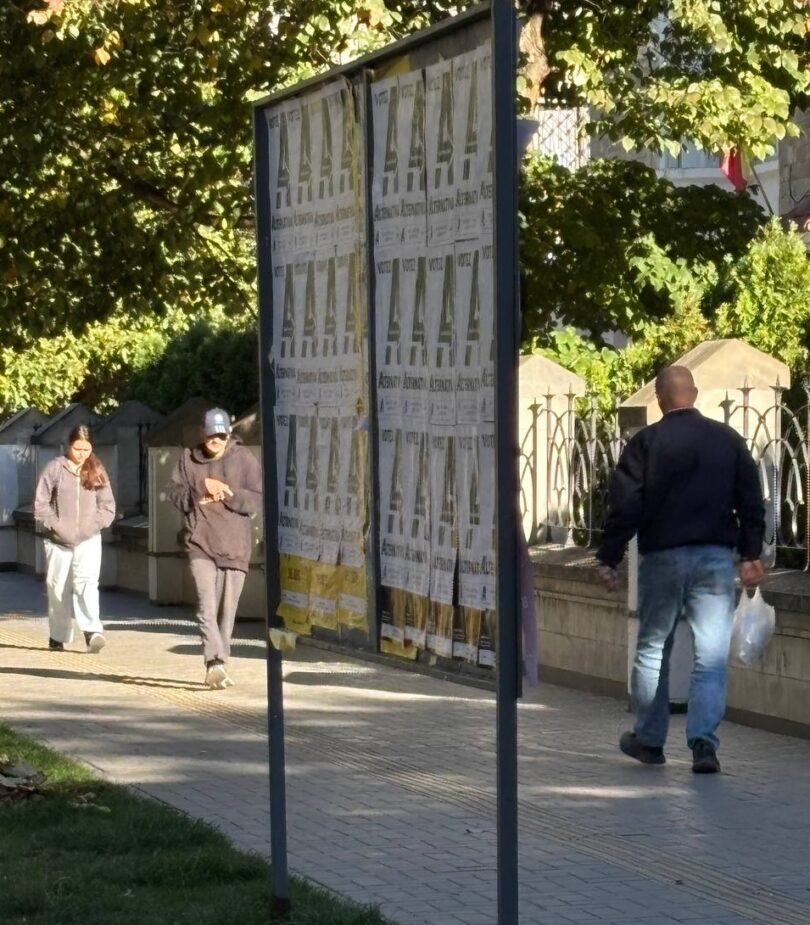
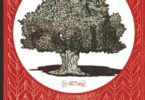


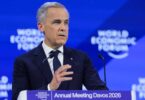
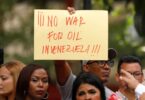
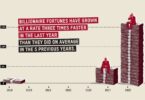
[…] [English version] […]
[…] Sprînceană, Platzforma, 26 septembrie […]
[…] Sprînceană, Platzforma, 26 septembrie […]